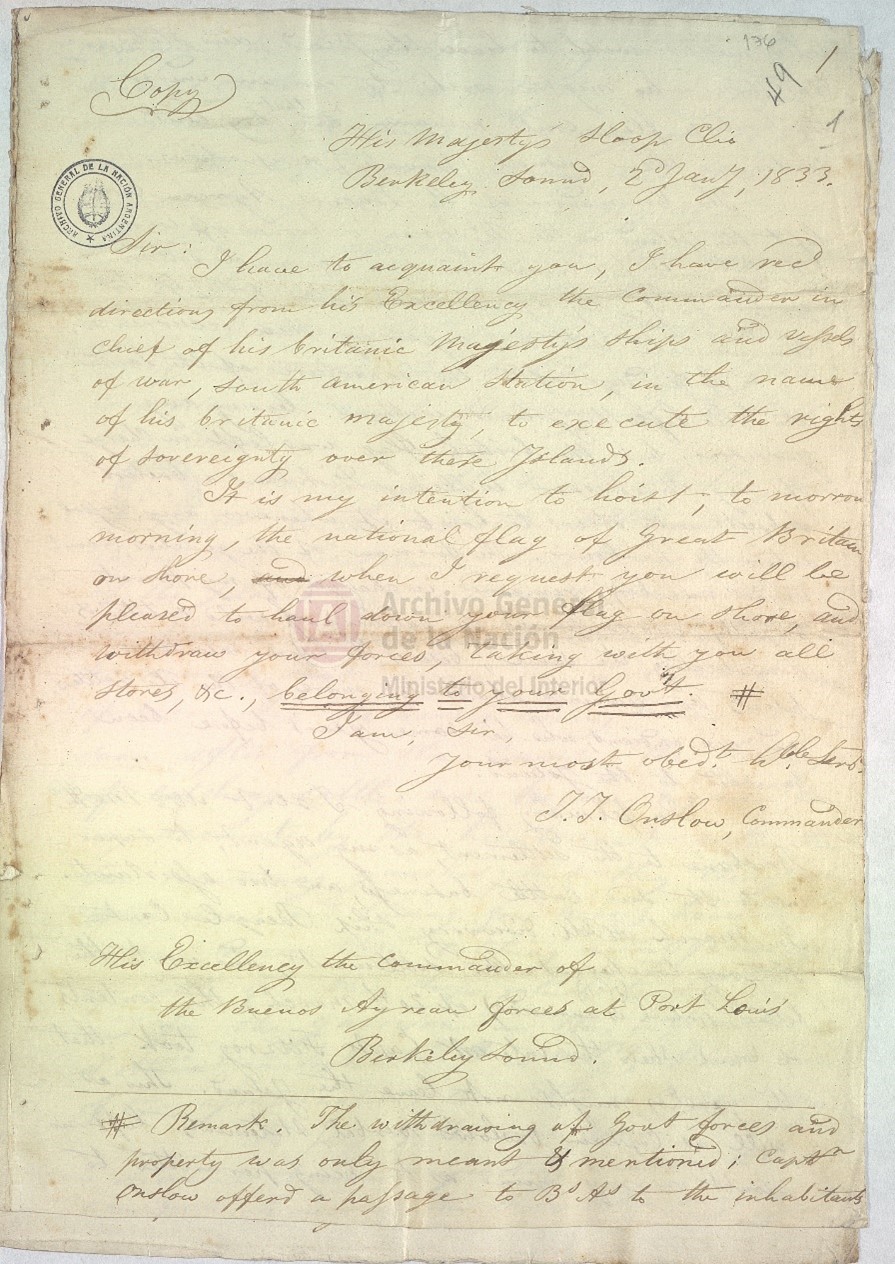Por Macacha Fueguia - Tras el ataque de la fragata estadounidense USS Lexington a Puerto Soledad en diciembre de 1831, las autoridades de Buenos Aires implementaron varias acciones, entre las cuales designan a Francisco Mestivier como nuevo comandante civil y militar interino en las Islas Malvinas. Asimismo, autorizaron la remisión de mercaderías y nuevos empleados a la Colonia de Luis Vernet.
La goleta Sarandí, al mando de José María Pinedo, partió de Buenos Aires en septiembre de 1832 con la misión de reforzar la presencia argentina en las Malvinas. Tras instalar al nuevo gobernador, Mestivier, Pinedo emprendió una serie de patrullajes para proteger los recursos marítimos. No obstante, las tensiones internas en la colonia escalaron rápidamente, culminando en un violento motín que acabó con la vida del comandante Mestivier. Al regresar, Pinedo se vio obligado a sofocar la rebelión y restablecer el orden en un contexto de gran inestabilidad.
La actividad estadounidense en el Atlántico Sur en 1831 y la situación en Puerto Soledad para 1832 alertaron al Reino Unido. En respuesta, el gobierno británico envió al HMS Clío, nave con 18 cañones, al mando de John Onslow, a Puerto Egmont con órdenes de emplear la fuerza si era necesario para asegurar la soberanía británica.
Finalmente, el 20 de diciembre de 1832 la HMS CLIO arribó a Puerto de la Cruzada tomando posesión formal a nombre de Su Majestad británica. Posteriormente, el 2 de enero, la nave ancló frente a Puerto Soledad. Onslow transmitió por la tarde al comandante argentino Pinedo sus instrucciones: tomar el control de las islas en nombre su rey y le dio un ultimátum de 24 horas para arriar la bandera argentina del mástil de la plaza mayor de Puerto Soledad, proceder a la evacuación de todos los soldados y sus familias junto con sus pertenencias. Desocupando todas las instalaciones. Finalmente, el 3 de enero de 1833 se produjo la usurpación británica de una parte de nuestro territorio nacional.
La ocupación británica marcó un punto de inflexión en la historia de nuestras Islas Malvinas, dando inicio a un largo conflicto de soberanía que persiste hasta el día de hoy. Argentina ha mantenido de manera ininterrumpida su reclamo sobre las Malvinas, desde el mismo día de conocidos los dolorosos acontecimientos y siempre considerando la acción británica de 1833 como un acto de usurpación.

Carta de John James Onslow, capitán de la goleta “Clío”, informando sobre la escasa resistencia encontrada en las Islas. Señala que hizo entonar el himno británico y que izó la bandera inglesa en Puerto Egmont. (02-01-1833) Fuente: AGN. LV01 doc. 130 folio 49, página 1






